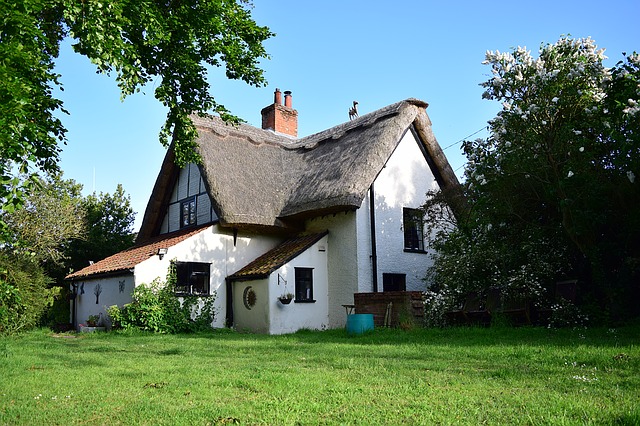Sellers are not putting properties up for sale because they have nowhere to move to
The property boom in Britain’s most popular hotspots is being strangled by a chronic shortage of homes for sale.
Sky-high buyer demand has hit a brick wall, particularly in rural locations, while sellers sit tight.
Data from the Royal Institution of Chartered Surveyors, a trade body, showed that nationally the ratio of sold to available properties – a key indicator of supply and demand – is at its lowest level since July 2002.
Now, the problem has become self-perpetuating. There is so little for sale that sellers do not want to list their properties because they have nowhere to go themselves.
This mismatch between supply and demand is one of the reasons why house price growth hit its highest rate in 16 years in June, according to building society Nationwide. But for buyers, it means chaos, stress and expense.
Where property sales are slowing
This fall in the level of properties for sale means that market activity – buying and selling – has slowed sharply this year compared to last.
Using data from analytics company TwentyCi, Savills estate agents compared sales agreed in each local authority in Britain in the last 30 weeks of 2020 (the period after housing markets began to reopen on May 13) with the same period in 2019. Almost without exception, sales boomed.
But in the first 22 weeks of 2021, sales activity fell in 62% of local authorities.
Sales were still high compared to the same period in 2019 (the last “normal” year), but the momentum of transactions has largely diminished – particularly in the hotspots that have been most highly sought after by pandemic relocators.
In Ryedale in Yorkshire, agreed sales after the housing market reopened last year were 79% higher than in 2019. But in the first 22 weeks of 2021, sales were only 29% up on 2019 – still high, but a drop of 53 percentage points compared to a few months before.
Other areas that recorded sharp falls in activity included Lewes in Sussex, Babergh in Suffolk and Shropshire.
In Babergh, which recorded a 49% fall in sales activity, there is an acute shortage of properties for sale. Tommy Newbigging, of Carter Jonas estate agents, said: “We have 1,000 active applicants with our office.” But he has just 28 available properties on the market; a further 25 are under offer.
A surge of relocators moving out of London has snapped up the rest. “Babergh is still in that golden 60-mile radius of London where people can still commute two or three days a week to their offices,” said Mr Newbigging.
Why is this happening?
This shortage is dragging the market. Buyers have to wait months before their sellers can find somewhere to make their onward moves, and these delays are now shutting relocating families out of the market.
Steve Gilleard, of Hunters estate agents in Ryedale, said: “Families need to be settled before school starts in September. That means they need to buy in the next week.”
Supply is low for several reasons. First, exceptionally high activity last year wiped out most existing listings. Next, the winter lockdown and high coronavirus case counts meant many sellers, particularly older downsizers, held off from marketing their homes because they didn’t want to host viewings. Others were overwhelmed home-schooling their children.
In Lewes, Adrian Passingham, of Strutt and Parker estate agents, said: “A lot of people still want to move but nobody has got anywhere to go. There’s nothing to even rent.”
His office has 14 available properties for sale; usually it has 35 to 40. “One property we sold recently has 37 viewings in 10 days, 11 offers, and sold for 7% over its guide price,” he added.
The sudden movement out of cities after lockdown has pushed supply out of kilter with demand in towns and villages.
The flow out of the capital is cooling as the economy reopens and the stamp duty incentive has dropped, but it will take time for supply and demand to even out, said Mr Passingham.
In Tandridge, Surrey, sales growth slowed from 69% to 25%. Jane Bishop, of Jackson-Stops estate agents in Oxted, said: “We have a logjam. We agree sales and there aren’t properties for the sellers to move to, particularly if they are trying to relocate to the coast, or downsize.”
Gazumping, which has become more common, is disrupting chains, said Ms Bishop. “It is incredibly hard keeping those sales in place.” Her office has 24 available properties (five of which are under negotiation) – half the normal level. “There are 22 buyers per listing.”
[Source: telegraph.co.uk/property, 6 July 2021]
Want to know more? Get in touch!
Image by Michael Hooker from Pixabay







